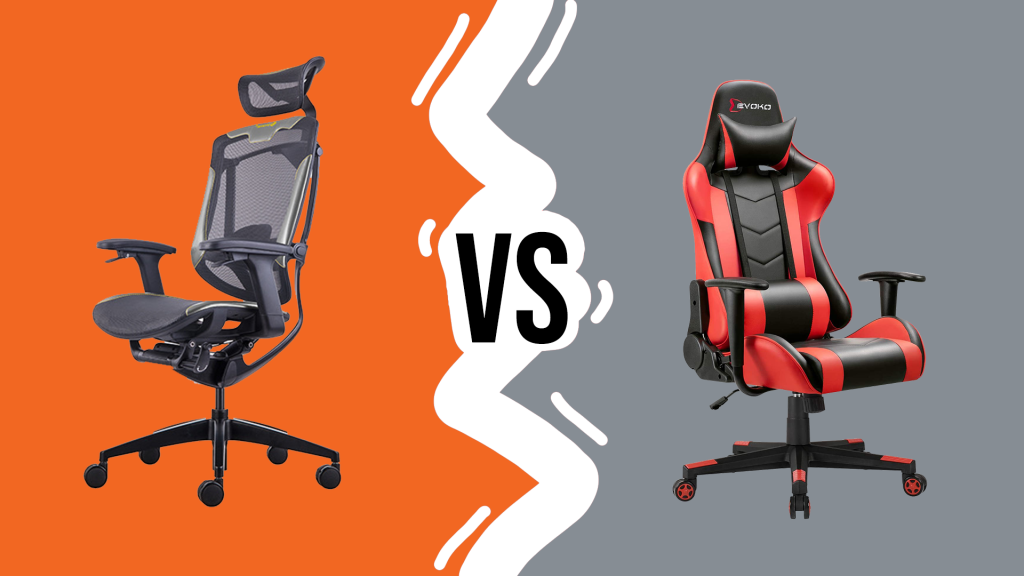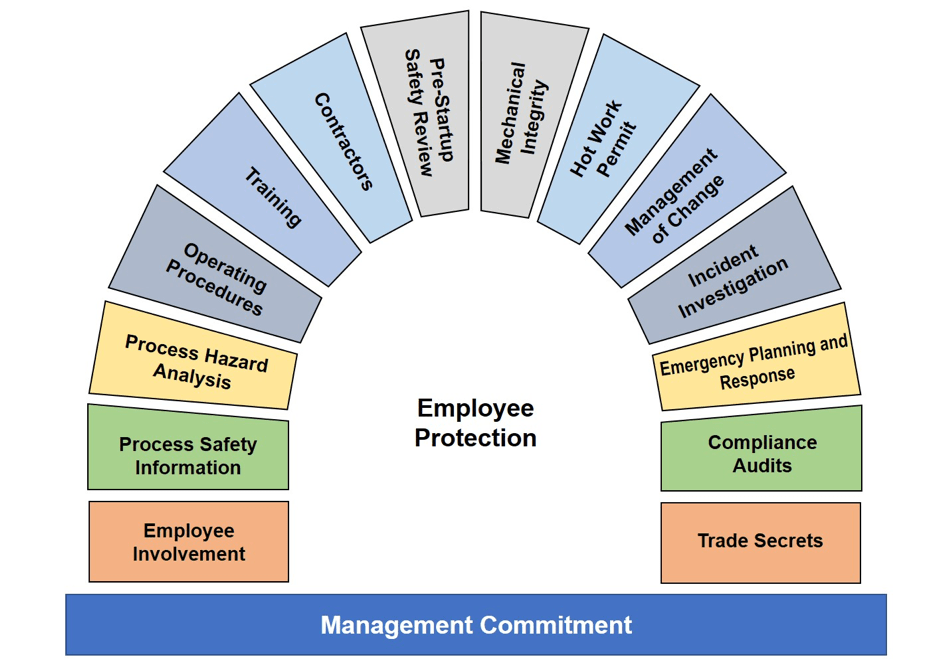Gaming Chairs vs. Office Chairs: Which Offers Better Ergonomics?

Choosing between a gaming chair and an office chair can be challenging, especially when considering ergonomics, comfort, and long-term health benefits. Whether you are a gamer, professional, or remote worker, the right chair significantly impacts posture, productivity, and overall well-being.
This article will explore the ergonomic differences between gaming chairs and office chairs, helping you make an informed decision. We will discuss their design, support features, adjustability, and suitability for different needs.
Understanding Ergonomics: Why It Matters in Chair Selection
Before comparing gaming chairs and office chairs, it is essential to understand ergonomics. Ergonomics refers to the design principles that enhance comfort, efficiency, and posture support while sitting for extended hours.
A well-designed chair should:
-
Support the natural curve of the spine to prevent back pain.
-
Encourage proper posture by aligning the head, shoulders, and hips.
-
Offer adjustability for height, armrests, and reclining positions.
-
Reduce strain on muscles and joints, minimizing fatigue.
Now, let’s compare how gaming chairs and office chairs perform in terms of ergonomics.
Design and Structure: Gaming Chairs vs. Office Chairs
1. Gaming Chair Design: Inspired by Racing Seats
Gaming chairs are designed with aesthetics and immersive gaming experiences in mind. They are heavily influenced by racing-style car seats, featuring:
-
High backrests that provide full spinal support, including the head and shoulders.
-
Bucket seat designs that cradle the body for a snug fit.
-
Winged sides to enhance gaming immersion (though not always practical for office work).
These design elements make gaming chairs visually appealing, but do they contribute to ergonomic support?
2. Office Chair Design: Focused on Functionality
Office chairs are designed with long-term comfort and workplace efficiency in mind. Their features include:
-
Lower backrests that align naturally with the lumbar curve.
-
Breathable mesh or cushioned fabric for airflow and comfort.
-
Neutral and professional aesthetics, making them ideal for office environments.
Unlike gaming chairs, office chairs prioritize practicality over flashy designs, but how does this impact ergonomics?
Lumbar and Back Support: Which Chair Is Better?
1. Gaming Chairs: Adjustable Lumbar Support with Pillows
-
Most gaming chairs come with removable lumbar and neck pillows to support the spine.
-
These pillows help reduce lower back strain but may shift out of position during use.
-
Some high-end gaming chairs feature built-in lumbar adjustment systems for customized support.
2. Office Chairs: Built-in Ergonomic Lumbar Support
-
Office chairs often have integrated lumbar support, aligning naturally with the lower back.
-
Mesh-back office chairs contour to the user’s posture, ensuring consistent spinal support.
-
Adjustable lumbar mechanisms provide better long-term comfort than gaming chairs’ removable cushions.
Winner: Office chairs provide more reliable lumbar support due to built-in ergonomic features.
Adjustability: Customizing Comfort for Different Needs
1. Gaming Chairs: Reclining and Armrest Adjustability
Gaming chairs typically offer:
-
135° to 180° recline functions for relaxed sitting positions.
-
Adjustable armrests (some with 4D movement for height, angle, and rotation).
-
Tilt and rocking features for dynamic movement.
These features enhance gaming experiences but may not be practical for everyday office work.
2. Office Chairs: Balanced Adjustability for Work Efficiency
Office chairs prioritize structured support with:
-
Multi-tilt mechanisms that allow natural reclining without excessive backward tilting.
-
Adjustable seat height to ensure feet remain flat on the ground.
-
Fixed or 2D armrests, providing essential arm support without excessive adjustability.
Winner: Gaming chairs offer more recline and armrest adjustability, while office chairs provide balanced support for productivity.
Seat Comfort and Cushioning: Which Chair Feels Better?
1. Gaming Chairs: Thick Padding and Bucket Seats
-
Most gaming chairs feature high-density foam cushioning for prolonged comfort.
-
The bucket seat design offers a snug fit, ideal for gaming sessions.
-
However, the raised side bolsters may limit movement and cause discomfort for larger users.
2. Office Chairs: Contoured Seats for Better Posture
-
Office chairs use flat or waterfall-edge seat designs, reducing pressure on the thighs and legs.
-
Mesh office chairs promote airflow, keeping users cool during extended work hours.
-
Padding is typically thinner than gaming chairs but more evenly distributed for posture support.
Winner: Office chairs are better for all-day work, while gaming chairs provide enhanced cushioning for shorter sessions.
Aesthetic Appeal: Which Chair Looks Better in Different Settings?
1. Gaming Chairs: Bold and Sporty Designs
-
Gaming chairs are often brightly colored with racing stripes and logos.
-
They are perfect for gaming setups and streaming backgrounds but may look out of place in formal office settings.
2. Office Chairs: Minimalist and Professional Aesthetics
-
Office chairs come in neutral tones like black, gray, and white, blending into corporate environments.
-
Sleek and simple designs make them versatile for professional and home office use.
Winner: Office chairs are more versatile for different settings, while gaming chairs are better for personalized gaming setups.
Durability and Build Quality: Which Chair Lasts Longer?
1. Gaming Chairs: Sturdy but Prone to Wear
-
Gaming chairs are typically built with synthetic leather (PU leather), which can crack over time.
-
Metal frames and sturdy bases enhance durability, but prolonged use may cause cushions to flatten.
2. Office Chairs: Breathable and Long-Lasting Materials
-
Office chairs use mesh, fabric, or genuine leather, offering better airflow and longevity.
-
Mesh chairs resist wear and tear, making them ideal for daily extended use.
Winner: Office chairs tend to last longer due to higher-quality materials and breathable designs.
Price Comparison: Which Chair Offers Better Value?
1. Gaming Chairs: Higher Cost for Design Features
-
Gaming chairs are often more expensive due to premium designs and branding.
-
Some high-end models include RGB lighting, footrests, and reclining features, increasing costs.
2. Office Chairs: Affordable Options for Long-Term Use
-
Office chairs come in a wide range of prices, from budget-friendly to premium ergonomic designs.
-
Mid-range office chairs provide great value with durable, ergonomic designs.
Winner: Office chairs generally offer better long-term value, while gaming chairs can be more expensive for additional features.
Final Verdict: Which Chair Is More Ergonomic?
| Feature | Gaming Chairs | Office Chairs |
|---|---|---|
| Ergonomic Back Support | ✅ (With pillows) | ✅✅ (Built-in lumbar support) |
| Adjustability | ✅✅ (Reclining & armrests) | ✅ (Structured support) |
| Seat Comfort | ✅✅ (Thicker padding) | ✅ (Better weight distribution) |
| Aesthetic Appeal | ✅✅ (Sporty and bold) | ✅ (Minimalist and professional) |
| Durability | ✅ (PU leather, prone to wear) | ✅✅ (Mesh and fabric last longer) |
| Best for Work | ❌ (Not ideal for long office use) | ✅✅ (Designed for productivity) |
Which Chair Should You Choose?
-
For long hours of work → Choose an Office Chair in France Online for better posture and durability.
-
For gaming and short sessions → Buy Gaming Chairs Online France for enhanced adjustability and aesthetics.







